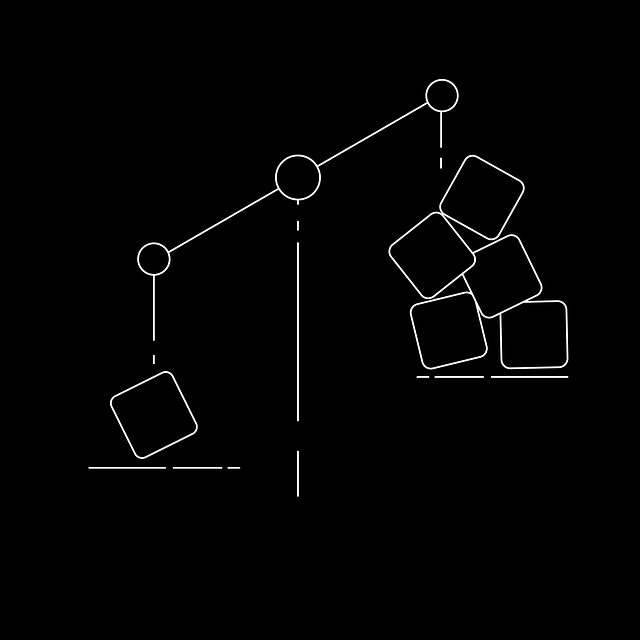Healthcare fraud, a complex threat evolving through manipulation of insurance claims, upcoding, and false data submission, requires robust strategies for detection and prevention, including meticulous record-keeping, internal controls, regulatory awareness, and advanced auditing techniques. The healthcare industry's regulatory framework, such as HIPAA, aims to protect patients, maintain privacy, and ensure ethical practices. Expert Advice on Healthcare Regulatory Compliance emphasizes proactive measures like strong internal controls, regular audits, and staying updated with guidelines to prevent financial fraud. AI and ML technologies are transforming fraud detection by analyzing datasets at speed, identifying patterns, and adapting to new schemes, making them key tools for navigating financial crimes. Integrating advanced analytics, continuous monitoring, and machine learning models alongside a culture of ethical conduct is crucial for combating sophisticated white-collar offenses.
Financial fraud detection is a critical aspect of healthcare, where advanced technologies and regulatory standards play a pivotal role. In this article, we provide expert advice on healthcare regulatory compliance, delving into understanding various types of healthcare fraud, navigating the complex landscape of compliance standards, and exploring innovative solutions like AI and machine learning. Additionally, we share best practices for organizations to implement robust fraud prevention strategies.
- Understanding Healthcare Fraud: Types and Common Practices
- Regulatory Landscape: Key Compliance Standards and Guidelines
- Advanced Technologies in Fraud Detection: AI and Machine Learning
- Best Practices for Organizations: Ensuring Robust Fraud Prevention Strategies
Understanding Healthcare Fraud: Types and Common Practices

Healthcare fraud is a complex and ever-evolving challenge, posing significant risks to patients, providers, and the overall integrity of the healthcare system. Understanding its various forms is crucial for effective detection and prevention strategies. According to expert advice on healthcare regulatory compliance, common types include insurance claim manipulation, upcoding (overcharging for services), and the presentation of false information for reimbursement.
Fraudsters often employ sophisticated methods such as falsifying patient records, creating fictitious entities, or using stolen identities. In high-stakes cases involving white-collar defense, avoiding indictment requires meticulous record-keeping, robust internal controls, and staying abreast of regulatory changes. Early detection through data analytics and advanced auditing techniques can significantly mitigate risks and protect against the severe consequences associated with these white-collar offenses.
Regulatory Landscape: Key Compliance Standards and Guidelines

The healthcare industry is governed by a complex web of regulations designed to protect patients, ensure quality care, and maintain ethical practices. Navigating this regulatory landscape is crucial for any healthcare provider or expert advice on healthcare regulatory compliance. Key standards and guidelines, such as HIPAA (Health Insurance Portability and Accountability Act) in the US, play a pivotal role in safeguarding sensitive patient data and ensuring privacy. Compliance with these regulations isn’t merely legal obligation; it’s essential for maintaining trust, fostering stability, and achieving extraordinary results within the respective business.
Understanding and adhering to these standards are vital to prevent financial fraud and other illicit activities. For instance, healthcare providers must implement robust internal controls, conduct regular audits, and stay updated with evolving guidelines to detect anomalies and potential fraudulent schemes. While general criminal defense strategies may offer some protection, proactive compliance measures are the cornerstone of risk management in this sector. By staying ahead of regulatory changes and adopting best practices, organizations can mitigate risks effectively, ensuring a secure operational environment.
Advanced Technologies in Fraud Detection: AI and Machine Learning

In the realm of financial fraud detection, advanced technologies like Artificial Intelligence (AI) and Machine Learning (ML) are revolutionizing the way we identify and prevent fraudulent activities. These cutting-edge tools leverage expert advice on healthcare regulatory compliance to analyze vast datasets with remarkable speed and accuracy. By learning from patterns and anomalies in transaction data, AI algorithms can predict potential fraud, enabling financial institutions to take proactive measures and avoid indictment.
Machine Learning models are particularly effective in adapting to evolving fraud schemes, as they continuously learn and improve over time. This capability is crucial in navigating the dynamic landscape of financial crimes, where criminals frequently modify their tactics to stay ahead of detection. By integrating these advanced technologies, respective business entities can fortify their defenses, ensuring the integrity of their financial systems and safeguarding the interests of the philanthropic and political communities.
Best Practices for Organizations: Ensuring Robust Fraud Prevention Strategies

Organizations seeking to fortify their defenses against financial fraud should look beyond basic compliance measures. Expert advice on healthcare regulatory compliance emphasizes a proactive approach integrating advanced analytics, continuous monitoring, and adaptive learning algorithms. By leveraging machine learning models, institutions can identify unusual patterns and anomalies indicative of fraudulent activities with an unprecedented track record of accuracy.
Moreover, fostering a culture of ethical conduct and strong internal controls is vital. This includes rigorous employee training on fraud awareness, clear reporting channels for suspicious transactions, and robust whistle-blower protections. In light of the growing sophistication of white collar and economic crimes, organizations must stay ahead by combining cutting-edge technology with robust human oversight to create a comprehensive fraud prevention strategy.
In conclusion, combating financial fraud in healthcare requires a multi-faceted approach. By understanding the various types and common practices of healthcare fraud, navigating the evolving regulatory landscape, and leveraging advanced technologies like AI and machine learning, organizations can implement robust fraud prevention strategies. Following expert advice on healthcare regulatory compliance ensures a vigilant and proactive stance against fraudulent activities, ultimately safeguarding patients, providers, and the industry as a whole.






